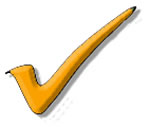
Tune-ups consist of making adjustments to the boiler to reestablish the proper air-fuel mixture in order to optimize combustion efficiency and boiler performance. Tune-ups should always be conducted by a qualified specialist/technician with appropriate knowledge, skill, and experience and in accordance with procedures supplied by the manufacturer, if available.
Before the tune-up
To prepare for the boiler tune-up, the person responsible for overseeing the compliance with tune-up requirements should:
- Clearly identify the applicable equipment and goals of the tune-up, including identifying applicable regulations and limitations.
- Assemble boiler and burner drawings, data sheet, and manufacturer’s specifications.
- Identify instrumentation and verify calibration.
- Identify measurement locations and verify access.
- Establish a tune-up timeframe.
During the tune-up
To ensure the boiler is operating at optimum efficiency, the qualified specialist/technician should:
- Inspect the boiler and burner, identify any defects, and clean or replace components, as necessary.
- Inspect the system controlling the air-to-fuel ratio and ensure that it is correctly calibrated and functioning properly.
- At each operating position of the combustion control system, measure and record the flame pattern, flue gas temperature, and the concentrations of carbon monoxide (CO) and oxygen (and NOx, if appropriate) in the effluent stream.
- Make appropriate adjustments to the combustion system to achieve the desired combustion characteristics (i.e., concentrations of CO, oxygen, and NOx, if appropriate, in the effluent stream).
- After adjustments, and at each operating position of the combustion control system, measure and record the flame pattern, flue gas temperature, and the concentrations of carbon monoxide (CO) and oxygen (and NOx, if appropriate, in the effluent stream).
Recordkeeping
To properly document the boiler tune-up, the person responsible for overseeing the compliance with tune-up requirements should record:
- The results of the pre-adjustment inspections.
- All measurements taken both before and after adjustments were made.
- A description of the adjustments, modifications, and repairs completed.
- If the boiler is capable of firing more than one type of fuel, the type and amount of fuel used over the 12 months prior to the tune-up.
- Recommendations for equipment modifications, if applicable.
Additional Resources:
- Year ends with sweeping boiler standards
- Summary Overview Factsheet: Adjustments for Major and Area Source Boilers and Certain Incinerators
- Technical Overview Factsheet: Adjustments for Major and Area Source Boilers and Certain Incinerators
Feedback: What is unclear to you about air permitting or any other air pollution topic? Leave a comment or send me an e-mail and tell me what topics are most important to you.
Timothy P. Fagan is a Legal Editor for BLR’s environmental publications, focusing primarily on air quality related topics. Mr. Fagan has covered environmental developments with BLR since 2000. Before joining BLR, he spent 5 years in environmental consulting and was responsible for air quality permitting and compliance for a broad range of industries in both the private and public sector. He received a Bachelor of Science degree in chemical engineering from Villanova University and a Master’s degree in environmental engineering from the Pennsylvania State University.

1 thought on “Boiler Tune-Ups: A Simple Checklist”